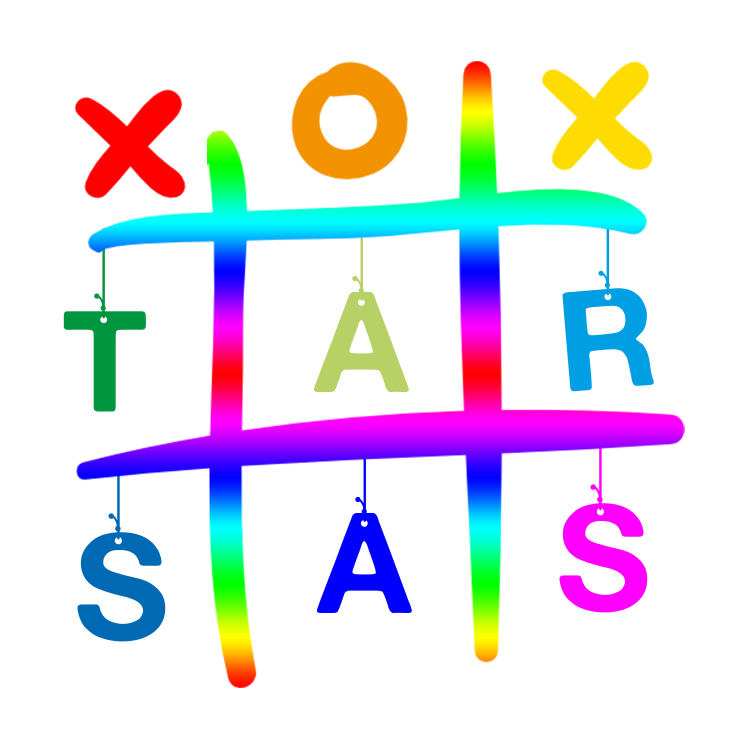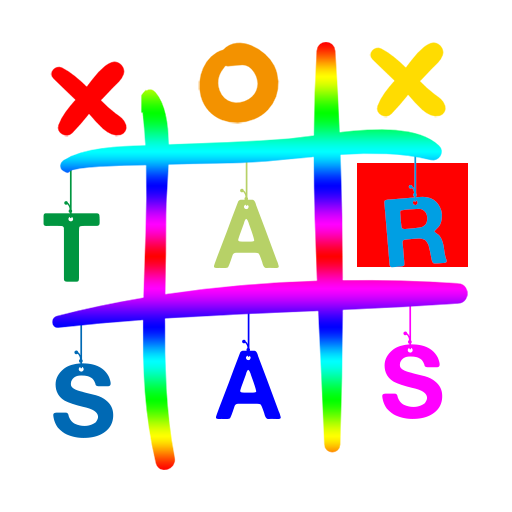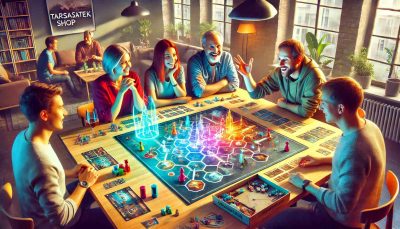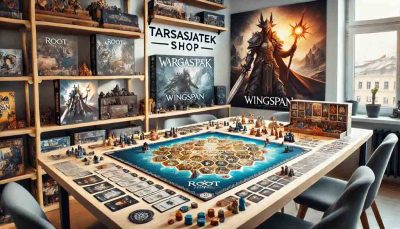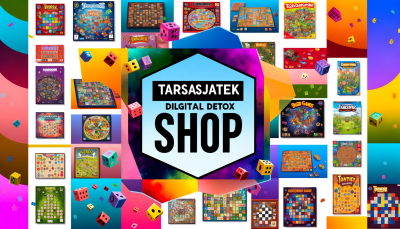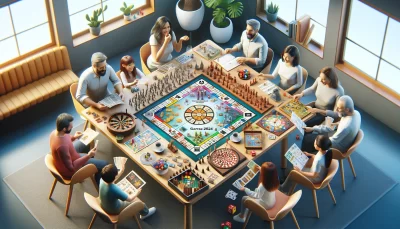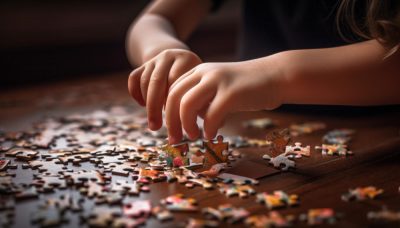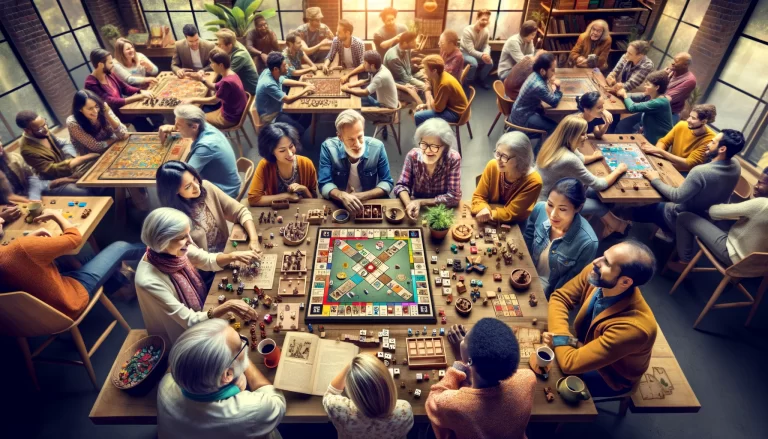
Amikor összegyűlünk egy társasjáték köré, több száz, sőt ezeréves hagyományokat idézünk meg. A társasjátékok nem csupán szórakoztatnak, összekötnek bennünket múltunkkal, kulturális gyökereinkkel és egymással. Ezek a játékok tükrözik a társadalom változásait, az emberi élet alapvető értékeit és a különböző kultúrák egyediségét.
A társasjátékok történelme annyira régi, mint maga az emberiség. Az ókori Egyiptomban játszottak már a Senet nevű játékkal, ami több mint 5000 éves, míg a kínai Go játéknak is több mint 4000 éves története van. Ezek a játékok nem csak szórakoztatták az embereket, a stratégiai gondolkodást, a türelem és a társas kapcsolatok építését is elősegítették. A társasjátékok így váltak a kulturális örökség és az emberi intelligencia megtestesítőivé.
A modern társasjátékok sokszínűsége és elterjedtsége még inkább előtérbe helyezi ezeket az értékeket. A világ minden tájáról származó játékok bemutatása lehetőséget ad arra, hogy betekintést nyerjünk más kultúrákba, megismerjük azok történeteit és hagyományait, miközben élvezzük a játék által nyújtott örömöt és közösségi élményt. A "Catan Telepesei" óceánokat átívelő kereskedelmétől kezdve a "Ticket to Ride" vasúti kalandjain át, minden társasjáték egy új világba kalauzolja el a játékosokat.
Ez a cikk sorra veszi a világ különböző sarkaiból származó társasjátékokat, feltárva történetüket, kulturális jelentőségüket és azt, hogy hogyan tükrözik és formálják azok a közösségeket, ahonnan származnak. Legyen szó hagyományos játékokról, amelyek évszázadok óta összehozzák az embereket, vagy modern alkotásokról, amelyek újraértelmezik a játék fogalmát, mindegyikük története betekintést nyújt az emberi kreativitásba és összetartozásba.
A cikk célja, hogy tegeződve, közvetlen és emberközeli hangnemben kalauzolja el az olvasót a társasjátékok változatos és izgalmas világában, bemutatva, hogy ezek a játékok hogyan ötvözik a szórakozást, a tanulást és a kulturális összeköttetéseket. Szó lesz arról, hogy a társasjátékok hogyan segíthetnek jobban megértenünk egymást és a világot, amelyben élünk, miközben felejthetetlen élményeket és örömteli pillanatokat szereznek nekünk.
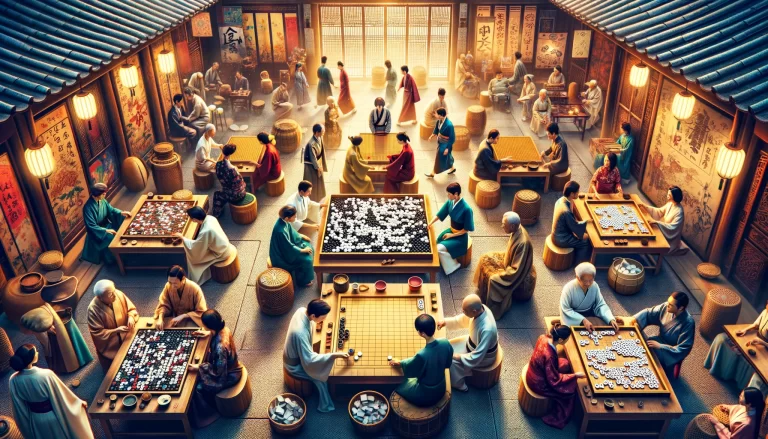
Ázsiai társasjátékok
Go (Japán)
A Go egy ősi tábla játék, amelynek gyökerei több mint négyezer évvel ezelőttre nyúlnak vissza Kínában, de Japánban vált igazán népszerűvé, ahol a játék művészetté és a stratégiai gondolkodás csúcspontjává fejlődött. A Go játékot két játékos játssza fekete és fehér kődarabokkal, amelyeket a tábla, a goban metszéspontjaiba helyeznek. A cél az, hogy több területet uraljunk, mint az ellenfél, miközben körülzárjuk és elfoglaljuk az ellenfél köveit. A Go rendkívül egyszerű szabályai ellenére a játék végtelenül bonyolult és mély stratégiákat tesz lehetővé, ami miatt gyakran emlegetik "az emberi intelligencia utolsó bástyájaként". Japánban a Go nem csupán egy játék, kulturális ikon, amely a türelem, az előrelátás és a tisztelet értékeit hordozza.
Mahjong (Kína)
A Mahjong, egy másik ősi kínai játék, amely a 19. század végén alakult ki, bár állítólag régebbi gyökerekkel rendelkezik. Ez egy dominóhoz hasonló játék, amit általában négy játékos játszik, bár vannak változatai, amelyek különböző számú résztvevőt tesznek lehetővé. A játékosok célja, hogy teljes "kézre" tegyenek szert, amely különböző kombinációkból áll, mint például sorok, hármak, vagy azonos jelű csempék. A Mahjong nem csak szórakoztató, a kínai kultúra és társadalom mély részét képezi, ahol a játékot gyakran társasági események és családi összejövetelek középpontjában áll.
Pachisi (India)
A Pachisi, amelyet gyakran "az indiai királyok játékának" neveznek, egy társasjáték, amely Indiában született, és számos más játék, köztük a modern Ludo elődjeként szolgált. A Pachisi célja, hogy a játékosok mind a négy bábuját körbevezessék a táblán, és biztonságosan visszatérjenek a középpontba. A játék a szerencsét és a stratégiát egyesíti, mivel a játékosok kockával (vagy annak egy régi változatával, a cowrie kagylókkal) dobnak, hogy meghatározzák a lépéseiket. A Pachisi központi szerepet játszik az indiai kultúrában, ahol nem csak szórakozás, hanem a családi és baráti kapcsolatok megerősítésének eszköze is.
Ezek a játékok több, mint egyszerű időtöltések, kapcsolódási pontokat kínálnak a kultúrák közötti megértés és a történelmi örökség felfedezése felé. Mindegyikük egyedi betekintést nyújt a saját kultúrájukba, értékeikbe és hagyományaikba, miközben örökérvényű örömöt és kihívást kínálnak minden korosztály számára.
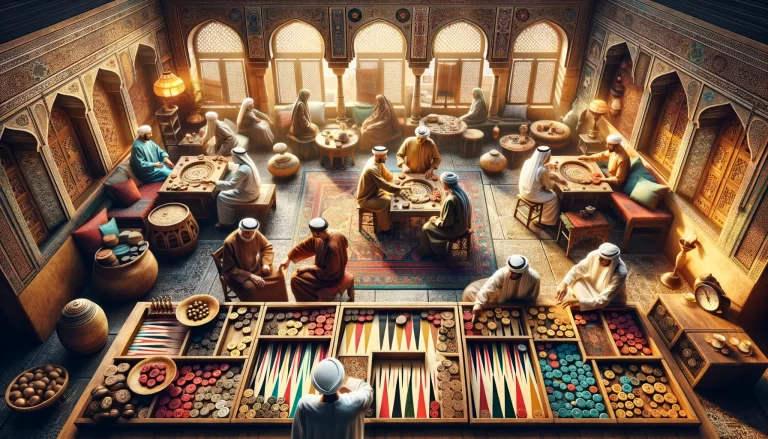
Közép-Keleti társasjátékok
Backgammon
A Backgammon egyike azon ősi játékoknak, amelyek időt és kultúrát átívelve ma is népszerűek. A játék gyökerei egészen 5000 éves korra nyúlnak vissza a Közel-Keleten, többek között Irán területén, ahol az elődjeit már az ókorban is ismerték. A Backgammon a társasjátékok között egyedülálló, mivel tökéletes egyensúlyt teremt a szerencse és a stratégia között, így a játék minden egyes partija új kihívást jelent.
A Backgammon globális terjedése a Közel-Keleten túlra, Európába és az egész világra, a kereskedelmi útvonalakon és a kultúrák közötti interakciókon keresztül történt. Napjainkban a játékot világszerte milliók játsszák, legyen szó baráti összejövetelekről vagy nemzetközi versenyekről. A játék letisztultsága és mélysége teszi, hogy generációkon átívelően változatlan népszerűségnek örvend.
Mancala játékok
A Mancala játékok családja szintén ősi múltra tekint vissza, gyökereik az afrikai és közel-keleti régióban találhatók. A Mancala nem egyetlen játék, hanem egy játékcsoport, amely számos helyi változatot foglal magában, köztük az Oware-t, Bao-t és Kalah-t. A játékok alapelve hasonló: játékosok köveket, magvakat vagy más apró tárgyakat helyeznek el a tábla mélyedéseiben, céljuk a lehető legtöbb "mag" begyűjtése.
A Mancala játékok jelentősége messze túlmutat a puszta szórakozáson. Ezek a játékok fontos szerepet játszanak a közösségi életben, az ünnepek és a társadalmi események szerves részét képezve. Emellett az oktatásban is hasznosítják őket, mint a matematikai és stratégiai gondolkodás fejlesztésének eszközeit. A Mancala játékok különösen Afrikában őrzik meg kulturális hagyományaikat, ahol nemcsak a játék, hanem a készítésük során használt anyagok és technikák is tükrözik a helyi művészetet és kézművességet.
E két társasjáték - a Backgammon és a Mancala - kitűnő példái annak, hogyan ötvözhető a szórakozás a mély kulturális és történelmi gyökerekkel. Mindkettő tükrözi az emberi kultúra sokszínűségét és összetettségét, miközben összeköt minket azokkal az ősökkel, akik évezredekkel ezelőtt játszották őket.
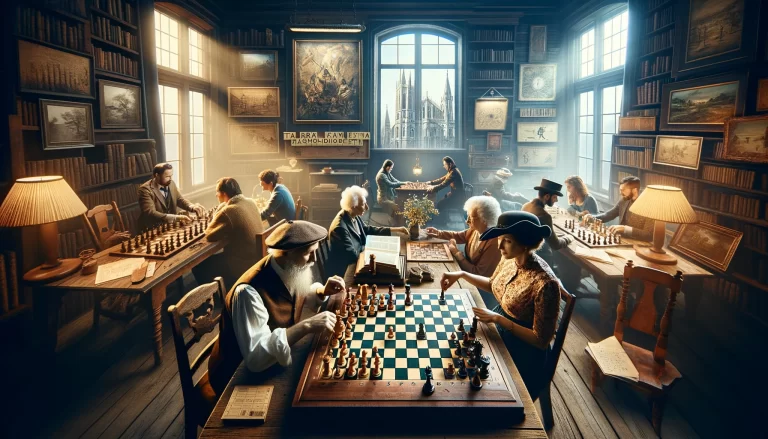
Európai társasjátékok
A sakk, az egyik legősibb és legnépszerűbb társasjáték a világon, eredetileg Indiában született meg "Chaturanga" néven körülbelül 1500 évvel ezelőtt. A játék a Perzsa Birodalmon keresztül jutott el Európába, ahol a középkor folyamán elkezdett formát ölteni a mai sakkhoz hasonló játékként. A sakk nem csak egy játék, az évszázadok során a stratégia, az intelligencia és a társadalmi státusz szimbólumává vált Európában.
A sakk az élet minden területéről vonzotta a játékosokat, a királyi udvartól kezdve az utcán át a kávéházakig, ahol az emberek összegyűltek, hogy csiszolják tudásukat és megmérettessék magukat. A sakkban a győzelem nem csak a szerencsén, hanem a játékos taktikai ügyességén, előrelátásán és kreativitásán múlik. A sakk olyan nagy hatással volt a kultúrára és a tudományra, hogy saját világbajnokságokat és versenyeket inspirált, és számos könyvet, filmet valamint tanulmányt ösztönzött.
A Scrabble, amely a szavak szerelmeseinek kedvenc társasjátéka, az 1930-as években született Amerikában. Alfred Butts, egy munkanélküli építész által kitalált, a Scrabble a nyelvtudás és a stratégiai gondolkodás kombinációját teszi próbára. A játékosok pontokat szereznek szavak létrehozásával a táblán, minden betű egy adott pontszámot képvisel, így a játék teszteli a szókincset és a tervezési készséget.
A Scrabble gyorsan népszerűvé vált az egész világon, és ma már több mint 121 országban játszák több mint 30 különböző nyelven. A játék olyan népszerűségre tett szert, hogy nemzetközi versenyeket és bajnokságokat rendeznek, ahol a legjobb játékosok mérik össze tudásukat. A Scrabble nem csupán szórakozás, a nyelvi készségek fejlesztésének eszköze is, amely ösztönzi a kreatív gondolkodást és a szóbeli kifejezőkészséget.
Ezek a játékok - a sakk és a Scrabble - kiváló példái annak, hogyan örökíthetők meg és újraértelmezhetők a kulturális hagyományok a modern korban. Mindkettő mélyen gyökerezik Európa történelmében és kultúrájában, ugyanakkor globális jelenséggé váltak, amelyek összekötik az embereket a világ minden tájáról.
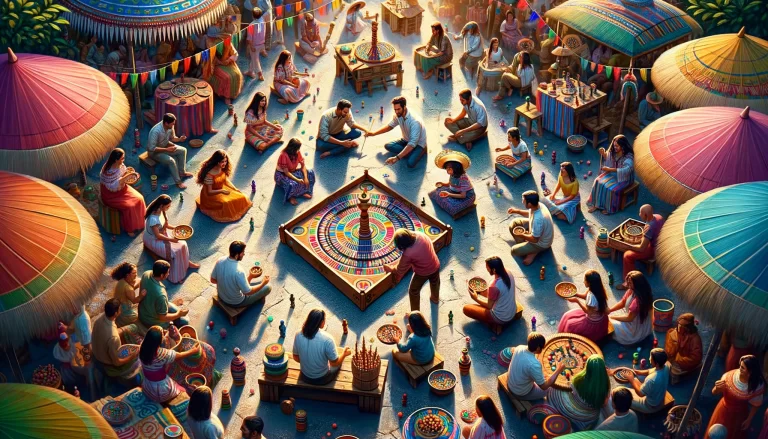
Latin-amerikai társasjátékok
Pirinola (Mexikó)
A Pirinola egy tradicionális mexikói forgó, amely különösen a "Dia de Muertos" (Halottak Napja) ünnepkörben válik központi szereplővé. Ez a kis fa vagy műanyag csúcsforma eszköz különböző utasításokkal van ellátva oldalain, mint például "Toma 1" (Vegyél fel 1-et), "Toma 2" (Vegyél fel 2-t), "Todos ponen" (Mindenki tesz bele), ami a játék során a játékosoknak különböző műveleteket ír elő. A Pirinola játék egyszerűsége és közösségi jellege miatt rendkívül népszerű a családok és barátok körében, tökéletes eszköze a közös nevetésnek és szórakozásnak.
A játék nem csak szórakoztató tevékenység, mélyen gyökerezik a mexikói kultúrában és hagyományokban, tükrözve az ország gazdag történelmi és kulturális örökségét. A Pirinola játék a generációk közötti kapcsolatok ápolásának eszközeként is szolgál, ahol a fiatalabbak tanulhatnak az idősebbektől, miközben együtt ünneplik a mexikói élet örömeit és kihívásait.
Senet (Dél-Amerika)
A Senet, bár eredetileg egy ősi egyiptomi társasjáték, amely több mint 5000 éve létezik, nem jellemző közvetlenül Latin-Amerikára. Azonban, ha elképzelnénk a Senet játékot, mint egy olyan társasjátékot, amely átkerült volna az andoki kultúrákba, izgalmas ötvözete lenne a régi világ bölcsességének és az új világ energiájának. Képzeljünk el egy olyan Senet játékot, amely az ősi Inka birodalom design elemeit és szimbólumait használja fel, ezzel hídverve a múlt és a jelen között, és új életet lehelve egy olyan játékba, amely az emberi civilizáció egyik legrégebbi társasjátéka.
A modern változatokban a Senet a stratégiai gondolkodást és a szerencsét egyesítheti, kínálva egy olyan játékélményt, amely ötvözi az ősi hagyományokat a jelenkor kihívásaival. Latin-Amerikában, ahol a társasjátékok fontos szerepet játszanak a családi és közösségi életben, egy ilyen adaptált Senet játék erősíthetné a kulturális örökség iránti tiszteletet és az innováció iránti nyitottságot.
Ezek a társasjátékok - a Pirinola és a Senet - példái annak, hogyan lehet a játékot eszközként használni a kultúrák közötti párbeszéd és az örökség megőrzése céljából. Mindkettő lehetőséget kínál arra, hogy mélyebben megismerjük és értékeljük a különböző kultúrák gazdagságát és sokszínűségét, miközben élvezzük a játék örömét és társaságát.
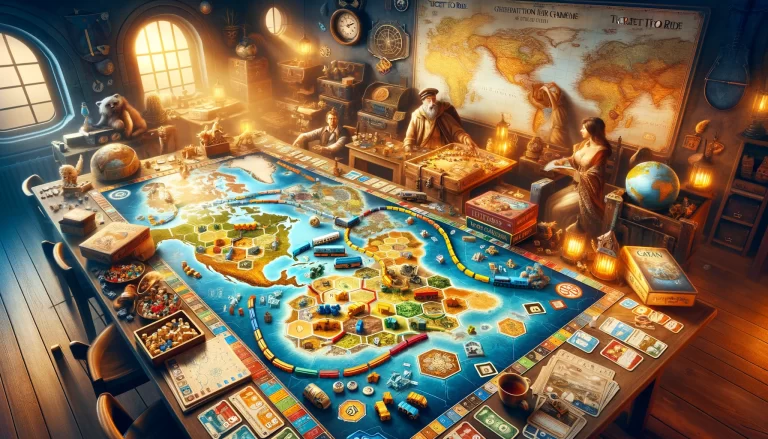
Modern társasjátékok, amelyek kulturális inspirációkat használnak
A társasjátékok világában a kulturális inspirációk felhasználása egyre népszerűbbé vált, ahogy a tervezők a világ különböző részeinek történeteit és földrajzát ötvözik a játékdizájnba. Két kitűnő példa erre a "Ticket to Ride" és a "Catan telepesei", amelyek nem csak mélyreható stratégiai élményt nyújtanak, hanem a játékosokat be is vezetik az adott régiók gazdag kulturális és történelmi örökségébe.
Ticket to Ride (Európa, Ázsia, Amerika)
A "Ticket to Ride" egy vasúti kalandjáték, amelyben a játékosok vasútvonalakat építenek a világ különböző tájain. Minden változat a játéknak egy-egy különböző régiót helyez a középpontba, Európától Ázsián át Amerikáig, megmutatva a játékosoknak azokat a kihívásokat és lehetőségeket, amelyeket az adott területek vasúti története kínál. A "Ticket to Ride" sorozat nemcsak hogy tiszteleg a vasútépítés korai napjai előtt, hanem lehetőséget ad a játékosoknak, hogy felfedezzék az adott régiók földrajzi és kulturális sokszínűségét is.
A "Catan telepesei" egy olyan stratégiai társasjáték, amely a felfedezés és gyarmatosítás témáját dolgozza fel. A játékosok egy lakatlan szigeten próbálnak erőforrásokat gyűjteni, utakat és városokat építeni, miközben versenyeznek egymással a területek és az erőforrások feletti uralomért. A "Catan" a tárgyalások, a stratégiai tervezés és az erőforrás-menedzsment fontosságát hangsúlyozza, miközben a játékosokat bevezeti a felfedezés korának kihívásaiba és izgalmába. A játéktervezés olyan elemeket integrál, amelyek reflektálnak a különböző kultúrák találkozására és a történelmi felfedezőutakra.
Ezek a modern társasjátékok tökéletes példái annak, hogyan lehet a játékot használni a kulturális és történelmi tudatosság növelésére. A "Ticket to Ride" és a "Catan telepesei" nemcsak szórakoztatóak, hanem oktató jellegűek is, lehetőséget biztosítva a játékosoknak, hogy játék közben betekintést nyerjenek a világ különböző részeinek gazdag kulturális örökségébe.
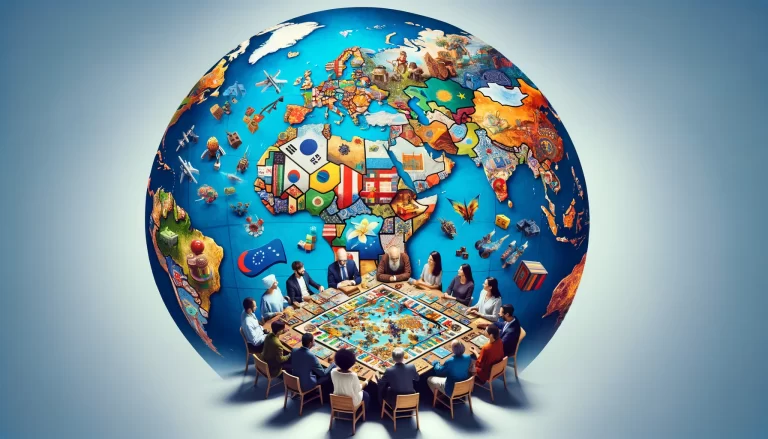
Játékok és a globális kapcsolatok
A társasjátékok sokkal többet kínálnak, mint csupán szórakozást, hídépítő szerepet töltenek be a különböző kultúrák és emberek között. Ezen játékok révén megismerhetjük és mélyebben értékelhetjük más népek életmódját, hagyományait és történelmét. A társasjátékok egyedülálló módon képesek elősegíteni a kulturális cserét és a globális megértést, miközben összehozzák az embereket a világ minden tájáról.
Kulturális Megértés és Értékelés
A társasjátékok lehetőséget adnak arra, hogy játékos módon merüljünk el különböző kultúrákban. Például egy olyan játék, mint a "Ticket to Ride", bemutatja Európa, Ázsia vagy Amerika vasúti hálózatát és földrajzát, miközben a "Catan telepesei" a felfedezés és gyarmatosítás korszakába repít vissza minket. Ezek a játékok nemcsak szórakoztatóak, hanem érdekes betekintést nyújtanak az adott régiók történelmébe és kultúrájába is.
A Kulturális Cserében Betöltött Szerep
A társasjátékok különleges platformot biztosítanak a kulturális csere és a párbeszéd számára. Amikor emberek különböző háttérrel ülnek le egy játékra, megosztják egymással gondolataikat, élményeiket és perspektíváikat. Ez a közös élmény nem csak az együtt töltött időt teszi értékessé, hanem segít abban is, hogy jobban megértsük egymás kultúráját, értékeit és hagyományait.
Globális Megértés Elősegítése
A társasjátékok olyan eszközök, amelyek ösztönzik a globális gondolkodást és az interkulturális kommunikációt. A játékokon keresztül a játékosok megtanulhatják a különbségek értékelését és az együttműködés fontosságát. A társasjátékok így nemcsak a szórakoztatás eszközei, hanem az oktatás és a kulturális megértés fontos forrásai is.
A társasjátékoknak így kulcsszerepük van a különböző kultúrák közötti hidak építésében. Segítségükkel felfedezhetjük a világot, megérthetjük és értékelhetjük a sokféleséget, miközben erősíthetjük kapcsolatainkat és bővíthetjük látókörünket. A "Tarsasjatek.Shop" blogon keresztül bemutatott játékok és történetek nem csak az asztaloknál, hanem a világ számos pontján összehozzák az embereket, megkönnyítve a kultúrák közötti megértést és az emberi kapcsolatokat.
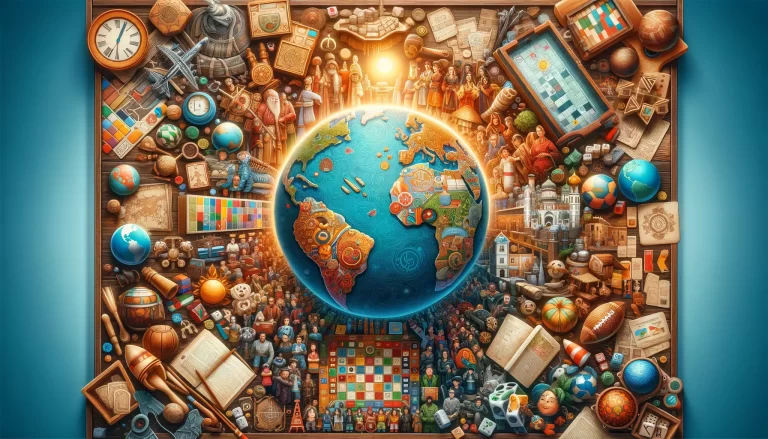
Záró gondolatok
A társasjátékok sokkal többet jelentenek, mint egyszerű szórakozás egy esős délutánon. Ősidők óta kulcsszerepet játszanak kultúráinkban, hagyományainkban és közösségeinkben. A világ minden tájáról származó társasjátékok betekintést nyújtanak más népek életébe, történelmébe és értékeibe, lehetővé téve számunkra, hogy játékos formában tanuljunk és közelebb kerüljünk egymáshoz.
A "Ticket to Ride" vasúti kalandjaitól a "Catan telepesei" felfedező útjaiig, a társasjátékok meghívást jelentenek a világ felfedezésére, nem csak a játéktáblán, hanem a valóságban is. Megtanítanak minket arra, hogy értékeljük a stratégiát, a türelmet, a tervezést és a társas kapcsolatok fontosságát. De ami a legfontosabb, rávilágítanak a kultúrák közötti hasonlóságokra és különbségekre, elősegítve a globális megértést és az elfogadást.
Ezért buzdítunk mindenkit, hogy bővítse társasjáték-ismereteit, és fedezzen fel új játékokat a világ minden tájáról. Minden egyes játék egy új történet, egy új kultúra és egy új kaland, amely arra vár, hogy felfedezzük. A "Tarsasjatek.Shop" keresztül nem csak új játékokat ismerhetsz meg, hanem új barátokra is találhatsz, miközben kiterjeszted a saját kulturális látókörödet.
A társasjátékok tehát nem csak asztalokat töltik meg, hanem szíveket és elméket is összekötnek a világ minden részén. Legyen ez egy meghívás mindenki számára, hogy vegyen részt ebben a globális közösségben, ahol a játék a közös nyelvünk.
